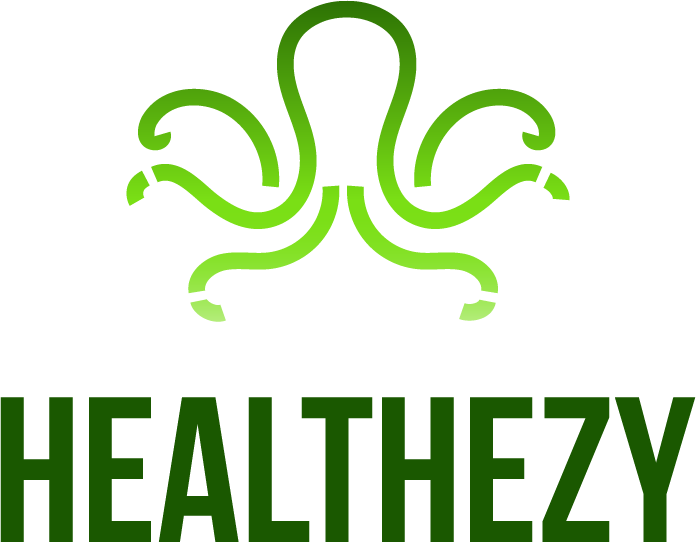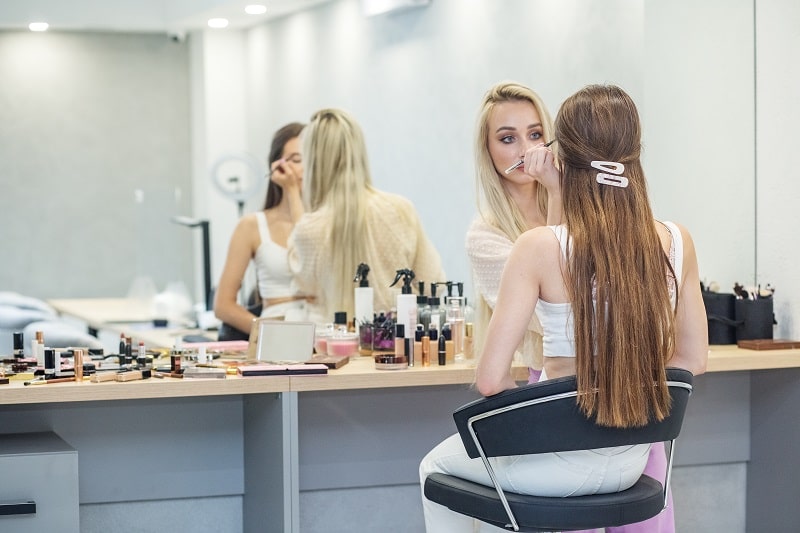Overview
Introduction to the cosmetic industry
The Cosmetic Industry’s Testing is a complex subject, as the the cosmetic industry is a multi-billion dollar industry that plays a significant role in the global economy. With the increasing demand for beauty and personal care products, companies in this industry are constantly striving to innovate and modernize their product testing methods.
Product testing is a crucial step in ensuring the safety and efficacy of cosmetic products before they are introduced to the market.
This article explores the cosmetic industry’s ongoing efforts to modernize product testing, highlighting the challenges and advancements in this field.
Importance of product testing
Product testing plays a crucial role in the cosmetic industry. It is essential to ensure the safety and efficacy of the products before they are introduced to the market. By conducting thorough testing, companies can identify any potential risks or adverse reactions that may occur when using their products.
This not only protects the consumers but also helps build trust and credibility in the industry. Moreover, product testing allows companies to improve their formulations and make necessary adjustments to meet the ever-changing demands of the consumers.
Therefore, the importance of product testing cannot be overstated in the cosmetic industry’s attempt to modernize and provide high-quality products to the customers.
Current challenges in product testing
Product testing in the cosmetic industry is facing several challenges in the current landscape. One of the main challenges is the need for more accurate and reliable testing methods. With the increasing demand for new and innovative products, companies are under pressure to deliver safe and effective cosmetics to the market.
However, traditional testing methods often fall short in providing accurate results, leading to potential risks for consumers. Another challenge is the ethical aspect of product testing. Many consumers are now more conscious about the use of animals in testing and demand cruelty-free alternatives.
This puts additional pressure on cosmetic companies to find alternative testing methods that are both effective and ethical. Lastly, the rapid advancements in technology pose a challenge in keeping up with the latest testing techniques.
Companies need to invest in research and development to stay ahead in the game and ensure the safety and efficacy of their products. Overall, the cosmetic industry is striving to modernize product testing to meet the evolving needs and expectations of consumers.
Advancements in Product Testing Methods
Introduction of alternative testing methods
In recent years, the cosmetic industry has made significant efforts to modernize product testing methods. One area of focus has been the introduction of alternative testing methods. These methods aim to reduce the reliance on animal testing and provide more accurate and reliable results.
The development of alternative testing methods has been driven by advancements in technology and a growing awareness of the ethical concerns surrounding animal testing.
This following will explore the various alternative testing methods that have been introduced in the cosmetic industry and their potential benefits.
Use of artificial intelligence in product testing
Artificial intelligence (AI) has revolutionized various industries, and the cosmetic industry is no exception. The use of AI in product testing has emerged as a game-changer, offering numerous benefits. With AI, cosmetic companies can analyze large amounts of data quickly and accurately, allowing them to make informed decisions about their products.
AI algorithms can identify potential risks and hazards associated with cosmetic ingredients, ensuring the safety and efficacy of the products. Additionally, AI-powered tools can predict consumer preferences and trends, helping companies develop innovative and market-driven cosmetic products.
The integration of AI in product testing is a significant step towards modernizing the cosmetic industry and ensuring the production of safe and high-quality products.
Advantages and limitations of new testing methods
Advancements in technology have revolutionized the cosmetic industry’s approach to product testing. The use of new testing methods offers several advantages, such as increased accuracy and efficiency.
These methods often rely on cutting-edge scientific techniques, such as in vitro testing and computer modeling, which provide a more reliable and predictive assessment of product safety. Additionally, the adoption of alternative testing methods reduces the need for animal testing, aligning with the industry’s growing emphasis on ethical practices.
However, it is important to acknowledge the limitations of these new testing methods. While they offer promising results, they may not fully replicate the complexities of human biology and the interactions between different cosmetic ingredients.
Therefore, a combination of traditional and new testing methods is necessary to ensure comprehensive product safety evaluation.
Regulatory Framework for Product Testing
Overview of existing regulations
The cosmetic industry’s attempt to modernize product testing is driven by the need to ensure consumer safety and meet evolving regulatory requirements. With advancements in technology and scientific understanding, there is a growing recognition of the limitations of traditional animal testing methods and a push for alternative testing approaches.
In response to this, regulatory bodies around the world have been updating their guidelines and regulations to encourage the use of non-animal testing methods and promote the development of innovative testing techniques.
This shift towards modernization reflects the industry’s commitment to ethical and sustainable practices, as well as its dedication to delivering safe and effective cosmetic products to consumers.
Proposed changes in product testing regulations
The cosmetic industry is making efforts to modernize product testing regulations. With advancements in technology and growing concerns about the safety and efficacy of cosmetic products, there is a need for updated testing methods.
Proposed changes in product testing regulations aim to incorporate alternative testing methods that are more reliable, efficient, and humane. These changes would ensure that cosmetic products are thoroughly tested for their safety and quality before they reach the market.
Additionally, the proposed regulations would require cosmetic companies to provide more transparency regarding their testing procedures and the ingredients used in their products. This would enable consumers to make informed decisions about the cosmetics they purchase.
Overall, the proposed changes in product testing regulations reflect the industry’s commitment to innovation and consumer safety.
Impact of regulatory changes on the cosmetic industry
The cosmetic industry has been greatly impacted by regulatory changes in recent years. These changes have forced companies to modernize their product testing methods in order to meet new safety standards and regulations.
As a result, cosmetic companies have had to invest in new technologies and research to ensure the safety and efficacy of their products. This has led to a shift in the industry towards more sustainable and ethical practices.
Additionally, regulatory changes have also increased transparency and consumer trust in the cosmetic industry, as companies are now required to provide detailed information about their testing processes and ingredients.
Overall, the impact of regulatory changes on the cosmetic industry has been significant, pushing companies to adapt and innovate in order to meet the evolving demands of consumers and regulators.
Collaboration between Industry and Research Institutions
Partnerships for innovative product testing
Partnerships for innovative product testing have become a crucial aspect of the cosmetic industry’s attempt to modernize. By collaborating with research institutions, regulatory agencies, and technology companies, cosmetic companies are able to leverage the expertise and resources of these partners to develop and implement advanced testing methods.
These partnerships not only help ensure the safety and efficacy of cosmetic products but also drive innovation in the industry. Through shared knowledge and access to cutting-edge technologies, cosmetic companies can stay at the forefront of product testing and meet the evolving needs and expectations of consumers.
Sharing of data and resources
The sharing of data and resources is a crucial aspect of modernizing product testing in the cosmetic industry. By sharing data, companies can collaborate and learn from each other’s experiences, leading to more efficient and effective testing methods.
This collaboration also allows for the pooling of resources, such as equipment and expertise, which can help reduce costs and accelerate the development of safe and innovative cosmetic products.
Furthermore, sharing data and resources promotes transparency and accountability within the industry, as it allows stakeholders to access and verify the validity of testing results.
Overall, the sharing of data and resources plays a vital role in advancing the cosmetic industry’s efforts to modernize product testing and ensure the safety and quality of cosmetic products.
Benefits of industry-academia collaboration
One of the key benefits of industry-academia collaboration in the cosmetic industry is the access to cutting-edge research and technology. By partnering with academic institutions, cosmetic companies can tap into the expertise and knowledge of researchers and scientists who are at the forefront of innovation.
This collaboration allows for the development of new and improved testing methods, ensuring that products are safe, effective, and meet the evolving needs and expectations of consumers.
Additionally, industry-academia collaboration fosters a culture of continuous learning and improvement, as both parties can exchange ideas, share resources, and stay updated on the latest industry trends.
Overall, this partnership between the cosmetic industry and academia plays a crucial role in driving innovation and advancing the field of product testing.
Consumer Perception and Demand for Safe Products
Growing awareness of product safety
With the increasing concerns about the safety of cosmetic products, there has been a growing awareness of the need for rigorous product testing. Consumers are becoming more conscious about the ingredients used in their beauty products and are demanding transparency from the cosmetic industry.
As a result, cosmetic companies are making efforts to modernize their product testing methods to ensure the safety and efficacy of their products. This includes investing in advanced technologies, such as in vitro testing and computer modeling, to replace traditional animal testing.
The aim is to provide consumers with safer and more reliable products while also addressing ethical concerns surrounding animal testing.
The cosmetic industry’s attempt to modernize product testing is a positive step towards meeting the evolving needs and expectations of consumers in terms of product safety.
Influence of social media on consumer perception
Social media has had a profound impact on consumer perception of the cosmetic industry. With the rise of platforms such as Instagram and YouTube, consumers now have direct access to a wealth of information and opinions about different cosmetic products.
Influencers and beauty bloggers have become powerful voices in shaping consumer preferences and attitudes towards product testing. Their reviews and recommendations can greatly influence the purchasing decisions of their followers, making social media a crucial factor in the modernization of product testing in the cosmetic industry.
Importance of transparency in product testing
Transparency in product testing is of utmost importance in the cosmetic industry’s attempt to modernize. Consumers are becoming more conscious about the ingredients used in their personal care products and are demanding greater transparency from brands.
By being transparent about their product testing methods, companies can build trust with their customers and ensure the safety and efficacy of their products. This not only enhances consumer confidence but also fosters a more ethical and responsible industry.
Therefore, it is crucial for cosmetic companies to prioritize transparency in product testing to meet the evolving needs and expectations of consumers.
Conclusion
Summary of key points
The cosmetic industry is making efforts to modernize product testing methods. In order to stay relevant and meet consumer demands, companies are investing in alternative testing methods that are more ethical and sustainable.
This shift is driven by the increasing awareness and concern for animal welfare and the environment. By embracing new technologies and approaches, the industry is striving to ensure the safety and efficacy of their products without compromising on ethical values.
This move towards modernization is an important step in the evolution of the cosmetic industry.
Future prospects of product testing
The future prospects of product testing in the cosmetic industry are promising. With the increasing demand for safe and effective products, there is a growing need for innovative and reliable testing methods.
The industry is actively investing in research and development to improve testing techniques, such as using advanced technologies like artificial intelligence and in vitro testing. These advancements not only ensure the safety and quality of cosmetic products but also help to reduce the reliance on animal testing.
Additionally, the implementation of stricter regulations and standards by regulatory bodies further enhances the credibility and trustworthiness of product testing in the industry. Overall, the future of product testing in the cosmetic industry looks bright, with continuous advancements and improvements that prioritize consumer safety and satisfaction.
Importance of continuous improvement in testing methods
Continuous improvement in testing methods is of utmost importance in the cosmetic industry. As new technologies and scientific advancements emerge, it is crucial for companies to stay up-to-date with the latest testing methods to ensure the safety and efficacy of their products.
By continuously refining and enhancing testing procedures, cosmetic companies can enhance their product development process, identify potential risks or issues early on, and ultimately deliver high-quality and reliable products to consumers.
Moreover, continuous improvement in testing methods also helps in meeting regulatory requirements and staying compliant with industry standards.
Therefore, it is imperative for the cosmetic industry to prioritize and invest in the continuous improvement of product testing methods.
Here is a great Canadian Regulatory website that will give you more information on the Canadian Cosmetic Industry.







